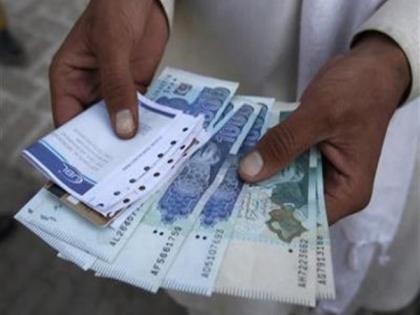Pakistan: Finance Ministry forecasts gloomy economy amid rising inflation
By ANI | Published: April 30, 2022 07:50 PM2022-04-30T19:50:07+5:302022-04-30T20:00:02+5:30
Owing to a combination of internal and external challenges of unpredictable tenure in Pakistan, the Ministry of Finance on Friday forecasted tough days ahead -- including rising inflation, expanding current account deficit, higher fiscal deficit and dampening economic growth prospects, said media reports.

Pakistan: Finance Ministry forecasts gloomy economy amid rising inflation
Owing to a combination of internal and external challenges of unpredictable tenure in Pakistan, the Ministry of Finance on Friday forecasted tough days ahead -- including rising inflation, expanding current account deficit, higher fiscal deficit and dampening economic growth prospects, said media reports.
According to the Finance Ministry, high international commodity prices not only keep inflation elevated, but they are also a burden on Pakistan's external account and hence on its foreign exchange reserves, Dawn reported.
Under normal circumstances, price spikes are followed by a cooling-off period. But the current cycles of international food and oil prices are different as the volatility in markets is high compared to historical standards due to geopolitical tensions.
According to the Finance Ministry, high international commodity prices not only keep inflation elevated, but are also a burden on Pakistan's external account and hence on its foreign exchange reserves.
The EAW noted that international developments and persistent high domestic inflation may impact domestic economic activities. Among the determining factors of current trends in both international and domestic inflation are supply chain issues and surging international commodity prices. It estimated 11.5-12.5 per cent year-on-year inflation for the current month.
The overall spike in CPI (Consumer Price Index) is on account of an increase in the prices of imported items, as the country is a net importer of such items, especially crude oil, pulses and edible oil, which are ultimately transmitted into domestic prices. Upward price movement is tend to be fueled by the Ukraine war, supply chain disruption and recovery in global demand.
Therefore, high inflation and accompanying monetary policy reaction may temporarily dampen the cyclical position of Pakistan's economy, thereby reducing growth prospects in the short run.
"On the expenditures side, higher subsidies and grants are putting significant pressure on fiscal accounts," said the finance ministry.
During July-February FY2022, large-scale manufacturing (LSM) posted growth of 7.8pc compared to 2.2pc during the same period last fiscal year.
During July-March of the current fiscal year, the current account deficit was recorded at $13.2 billion compared to just $275m during the same period last financial year -- a massive growth with dire consequences -- for exchange rate and foreign exchange reserves.
As per the local media reports, the current account deficit widened due to the constantly growing import volume of energy and non-energy commodities, along with a rising trend in the global prices of oil, Covid vaccines, food and metals.
During July-March of FY2022, the fiscal deficit has increased to 4pc of GDP against 3pc last year. "It is expected that fiscal deficit may increase further in the coming months," reported Dawn, citing sources.
For April this year, exports of goods and services are expected to continue their upward trend and imports may remain at the same level in line with domestic economic activity and international commodity prices.
Moreover, economic activities in Pakistan's main trading partners continue to remain slightly above the trend as some slowdown has been observed due to geopolitical uncertainty and a surge in commodity prices. If these tensions continue, the country's growth may be affected as well.
Pakistan's government has expressed severe concerns previously as well, claiming that the overall budget deficit might rise to Rs 5.6 trillion by the end of June 2022.
The main reason for this prediction of the increase in the budget deficit is said to be unfunded subsidies, off-book expenditures, the inability of the provinces to generate desired revenue surplus and the Federal Board of Revenue (FBR) expected shortfall and overrun in expenditures mainly because of increased debt servicing.
This comes as Pakistan is already grappling with a massive rise in foreign debt and its economy is slumping to a catastrophic low.
( With inputs from ANI )
Disclaimer: This post has been auto-published from an agency feed without any modifications to the text and has not been reviewed by an editor
Open in app